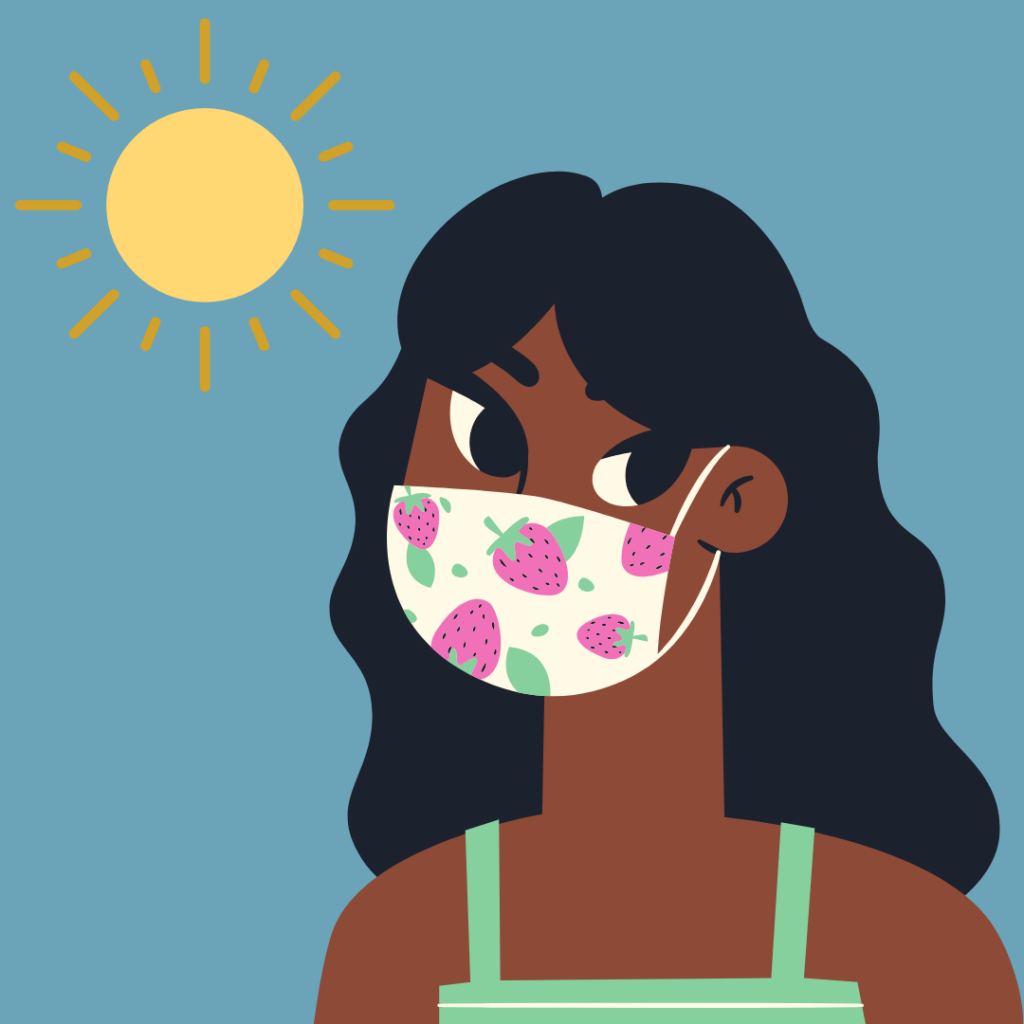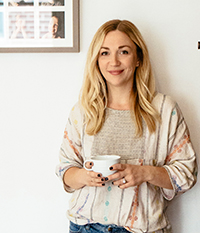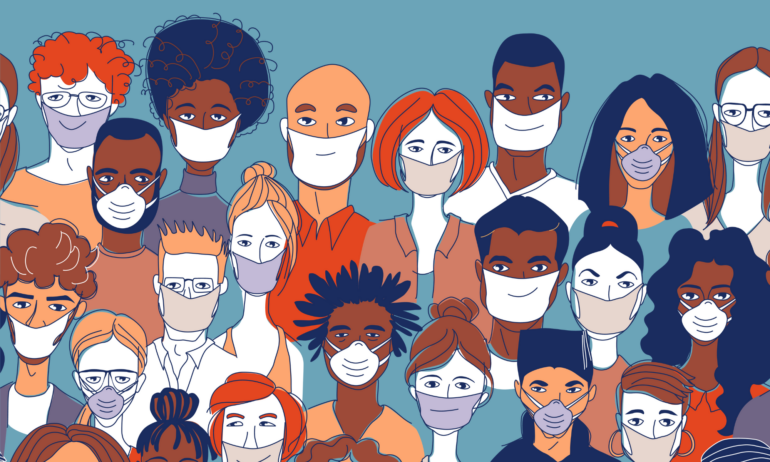As the weather heats up and we enter Phase 4 of our reopening plan, we finally get to enjoy the outdoors and public places we have missed so much. To protect others, we are required to wear face masks while out and about, a rule that will last until we have a COVID-19 vaccine (this is also when we will move to Phase 5). Although masks may be uncomfortable, wearing one in public is a small thing you can do that makes a big impact: research proves that even a cotton mask reduces the number of virus particles emitted from our mouths by as much as 99 percent, thus helping curb the spread of the virus to others.
Chicago summers are hot and swift, so as we venture out masked-up, we might encounter a few skin related issues. We spoke to a local dermatologist, and a repeat Best of Winner, Dr. Jordan Carqueville, to find out how we can take care of our skin, troubleshoot any blemishes and be comfortable in our masks this summer. We also included a few masks we love that follow Dr. Carqueville’s advice to aim for functionality, and breathability.
The Illinois summer is hot, muggy and humid. What tips do you have for dealing with the combination of sweat and mask wearing?
Wearing little or no make-up under the mask will help reduce occlusion of dirt and oils into the pores. Make sure you are washing your mask daily if you are sweating, as the mask is absorbing the dirt and oils with every wear. Take breaks wearing the mask to let your skin breathe when you are not in environments where the mask is necessary.
Are there any types of materials that allow for better breathing in the heat?
Masks made of tightly woven, 100% cotton fibers with a filter tend to breathe better than the synthetic fibers of polyester masks, which will trap heat more.
What about sunscreen?
Since only a portion of the face is covered in a mask, it still leaves the root of the nose, upper cheeks, forehead and ears vulnerable to UV light. Make sure to apply sunscreen to these exposed areas when wearing a mask and wear sun protective clothing, such as a broad-brimmed hat. If you are outside without a mask, then the entire face should still be protected with sunscreen. Remember that reapplication of sunscreen is needed for prolonged sun exposure.

How should we take better care of our skin?
In my dermatology practice, I am seeing a lot of “maskne”, mask-induced rosacea, and irritation caused by wearing masks. The “maskne” is often caused by the occlusion of the pores with dirt and oil. It is helpful to lightly exfoliate with washing to remove dead skin cells and oils that may be clogging the pores. The rosacea and irritation can be caused by the friction of the mask and the removal of the skin’s natural oils by the mask. It is helpful to cleanse the skin morning and evening and moisturize after each wash to protect the skin barrier. I also recommend washing the mask with fragrance-free detergents and fabric softeners to avoid irritation of the skin with fragrance chemicals.
Any tips or treatments if you are breaking out around your mask area?
Over-the-counter spot treatments with salicylic acid washes or benzoyl peroxide gels may be helpful to treat pimples caused from wearing a mask. If this is not helping, I would recommend scheduling a consultation with your dermatologist to discuss treatments or prescription acne treatments.
Here are some masks that we love:
If you buy something through our links, Make It Better Media Group may earn an affiliate commission.
How to help:
Many are finding that helping others is an effective way to help combat feelings of powerlessness in the face of COVID-19. Here are some deserving nonprofits, including food pantries, that need your support.
More from Better:
- New Phase of Openings Brings New Phase of Fear: How To Cope
- 10 Easy Happiness Boosters That Will Bring You Joy
- Families Are Spending 24 Hours a Day Together During COVID-19—Here’s How It’s Impacting Them
 Macaire Douglas lives in the Chicago suburbs with her husband and two sons. She proudly supports Save Abandoned Babies Foundation, a Chicago-based nonprofit organization that works tirelessly to prevent the illegal abandonment of newborns nationwide. Since its inception in 2000, more than 3,600 newborns have been safely surrendered and adopted into loving homes.
Macaire Douglas lives in the Chicago suburbs with her husband and two sons. She proudly supports Save Abandoned Babies Foundation, a Chicago-based nonprofit organization that works tirelessly to prevent the illegal abandonment of newborns nationwide. Since its inception in 2000, more than 3,600 newborns have been safely surrendered and adopted into loving homes.

